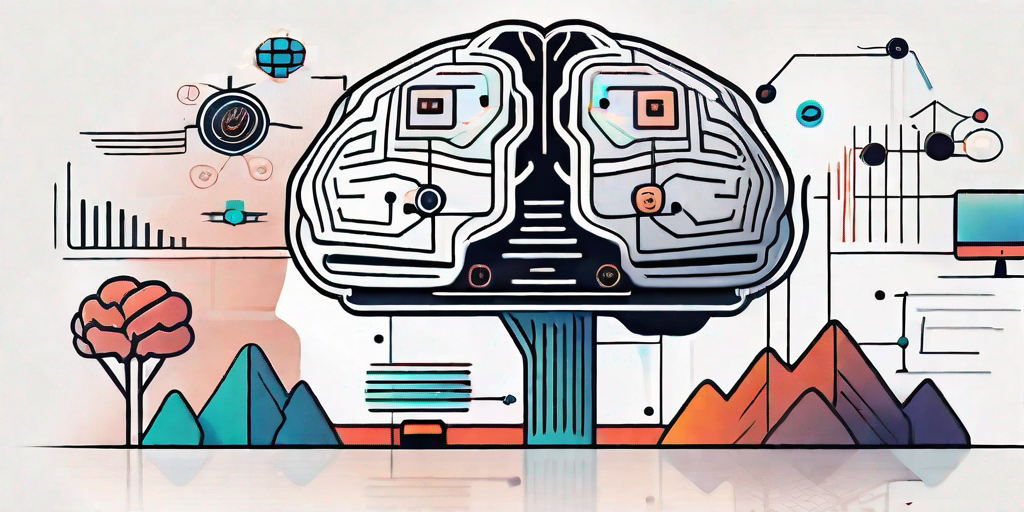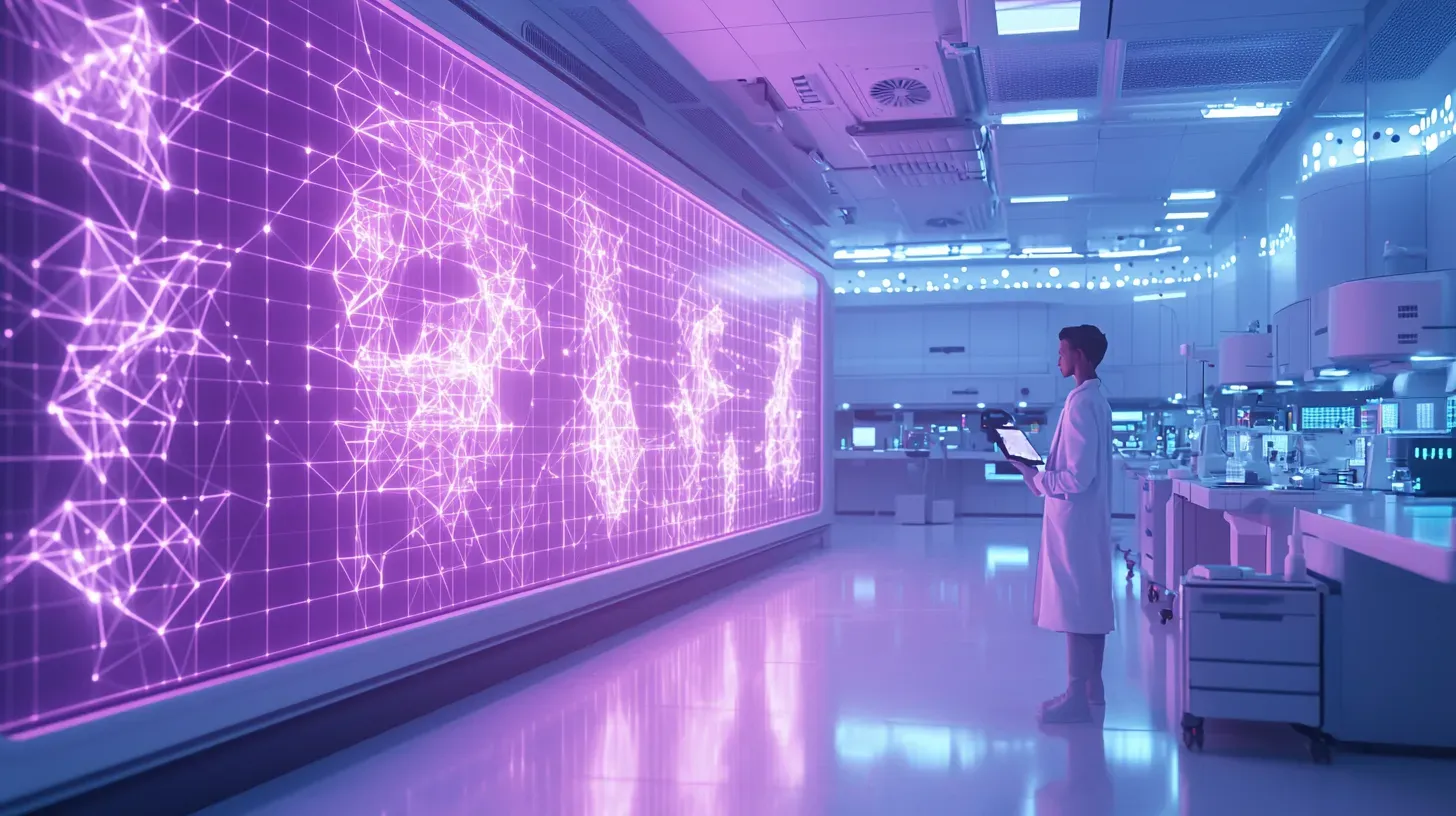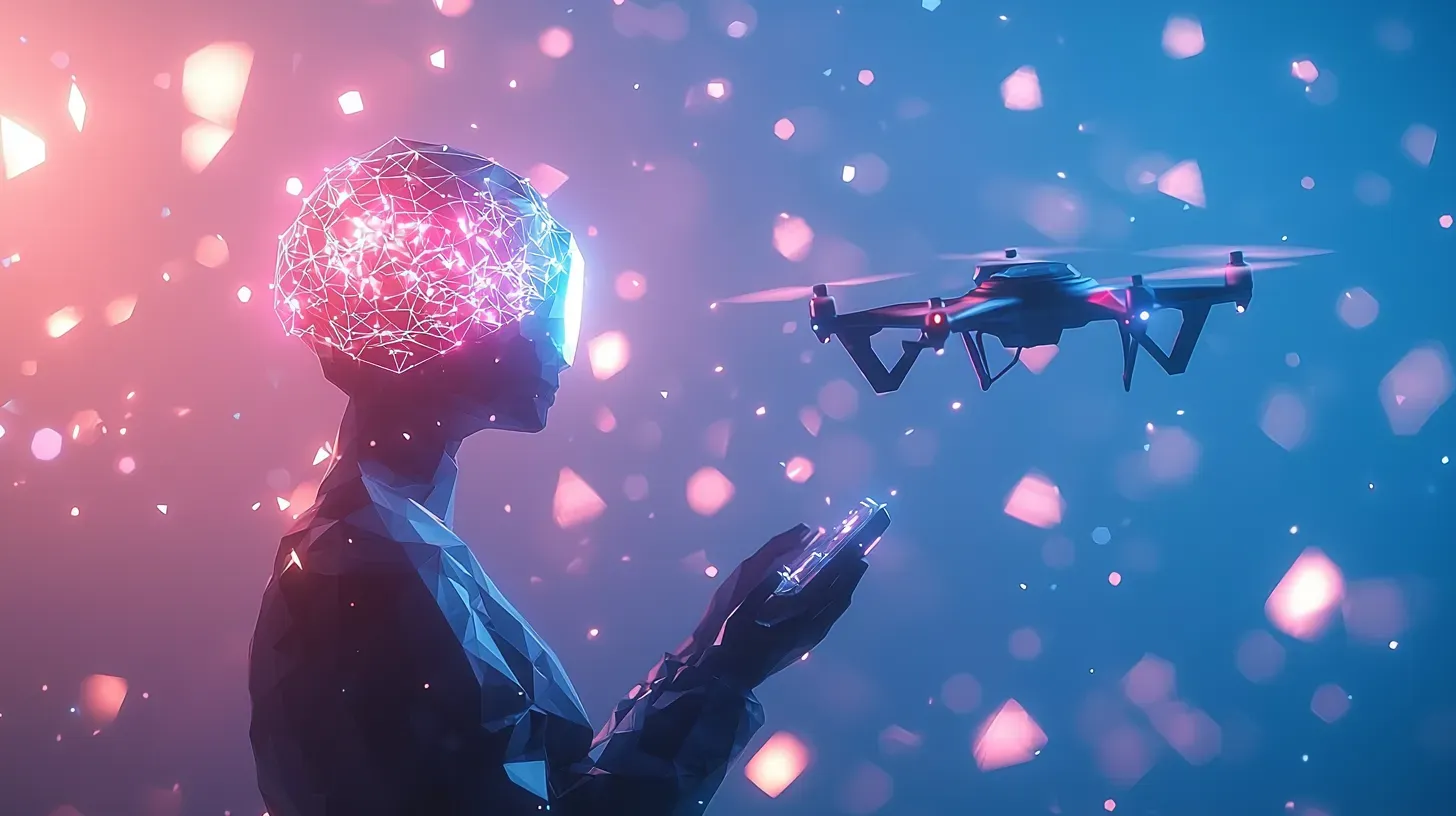Understanding Natural Language Processing with an Innovation Futurist

Understanding Natural Language Processing with an Innovation Futurist
In today's rapidly evolving world of technology, understanding the intricacies of Natural Language Processing (NLP) is becoming increasingly important. NLP is a branch of Artificial Intelligence (AI) that focuses on the interaction between computers and human language. To help demystify this complex field, an Innovation Futurist plays a crucial role in deciphering the nuances of NLP and predicting its future.
Understanding the Basics of Natural Language Processing
Natural Language Processing (NLP) is a fascinating field that revolves around the ability of computers to understand and interpret human language. It aims to bridge the gap between human communication and machine comprehension, enabling computers to process and comprehend language in a way that is similar to how we communicate with each other.
NLP encompasses a wide range of tasks and applications, each contributing to the overall goal of making our interactions with technology more natural and intuitive. One of the fundamental tasks in NLP is speech recognition, which involves converting spoken language into written text. This technology has revolutionized the way we interact with voice assistants, allowing us to dictate messages, search the web, and even control smart devices with just our voice.
Another important application of NLP is sentiment analysis, which involves analyzing and understanding the emotions and opinions expressed in text. This technology is widely used in social media monitoring, customer feedback analysis, and brand reputation management. By automatically detecting sentiment, businesses can gain valuable insights into customer preferences and opinions, allowing them to make data-driven decisions.
Language translation is yet another key aspect of NLP. With the advent of machine translation systems, language barriers are slowly being broken down. These systems use sophisticated algorithms and machine learning techniques to translate text from one language to another, making it easier for people around the world to communicate and understand each other.
Chatbot development is also a prominent area within NLP. Chatbots are computer programs designed to simulate human conversation, providing users with automated responses and assistance. They are commonly used in customer support, virtual assistants, and even in educational settings. By leveraging NLP techniques, chatbots can understand user queries, provide relevant information, and engage in meaningful conversations.
At the core of NLP lie several key components that work together to enable computers to process and understand human language. Syntactic analysis focuses on the structure and grammar of sentences, ensuring that the computer can identify the subject, verb, and object in a sentence. This analysis helps the computer make sense of the syntactic rules that govern language.
Semantic understanding, on the other hand, delves into the meaning behind words and phrases. It involves mapping words to their corresponding concepts and understanding the relationships between them. This component allows the computer to grasp the intended meaning of a sentence, even if the words used are ambiguous or have multiple interpretations.
Pragmatic interpretation is yet another crucial component of NLP. It takes into account the context and intent of the communication, allowing the computer to understand the implied meaning and infer the speaker's intentions. This component helps the computer go beyond the literal interpretation of words and consider the broader context in which the communication is taking place.
In conclusion, Natural Language Processing is a rapidly evolving field that holds immense potential in transforming the way we interact with technology. By harnessing the power of algorithms and machine learning, NLP enables computers to process and comprehend human language, opening up a world of possibilities for more natural and intuitive interactions.
ethical considerations surrounding NLP potential risks and challenges associated with the technology advancements in machine learning algorithms integration of NLP with other emerging technologies future of NLP and its impact on societyThe Intersection of Artificial Intelligence and Natural Language Processing
Artificial Intelligence (AI) and Natural Language Processing (NLP) are two closely intertwined fields that have revolutionized the way we interact with technology. NLP, in particular, serves as a crucial component of AI, enabling machines to understand and respond to human language in a meaningful and intelligent manner.
As AI continues to evolve, NLP plays a pivotal role in enhancing the capabilities of intelligent systems. Voice assistants like Siri, Alexa, and Google Assistant have become an integral part of our daily lives, and NLP is at the core of these AI-driven interactions. These voice assistants are designed to understand and interpret human speech, allowing us to perform various tasks effortlessly, such as setting reminders, playing music, or even ordering groceries.
But NLP goes beyond just voice assistants. It is also extensively used in chatbots and virtual agents that provide customer support. These AI-powered chatbots are capable of understanding and responding to customer queries in a natural language, providing quick and accurate assistance. This not only improves customer satisfaction but also reduces the workload on human customer support agents.
By incorporating NLP into AI systems, we can create a more seamless and interactive user experience. Imagine being able to communicate with your car, asking it to play your favorite song or adjust the temperature, all without needing to press a button. NLP allows for this level of natural human-computer interaction, making technology feel more intuitive and tailored to our needs.
Moreover, NLP is also crucial in the field of sentiment analysis, where AI systems analyze and interpret human emotions expressed in text. This has applications in various domains, including market research, social media monitoring, and customer feedback analysis. By understanding the sentiment behind customer reviews or social media posts, companies can gain valuable insights into customer preferences and make data-driven decisions.
Another exciting application of NLP in AI is machine translation. With the advancements in NLP techniques, machine translation systems have become more accurate and reliable. These systems can automatically translate text from one language to another, breaking down language barriers and facilitating global communication. This has immense implications for businesses, researchers, and individuals who need to communicate across different languages.
Furthermore, NLP is also extensively used in information retrieval systems, such as search engines. When you type a query into a search engine, it uses NLP algorithms to understand the meaning behind your query and provide relevant search results. NLP helps in understanding the context, semantics, and intent behind the user's query, ensuring that the search results are accurate and useful.
In conclusion, the intersection of Artificial Intelligence and Natural Language Processing has opened up a world of possibilities. From voice assistants to chatbots, sentiment analysis to machine translation, NLP is at the forefront of these AI-driven applications. As technology continues to advance, NLP will play an increasingly important role in making human-computer interactions more seamless, intuitive, and personalized.
How Innovation Futurists Predict the Future of NLP
Innovation Futurists use a combination of research, analysis, and their deep understanding of the field to predict the future of NLP. They identify emerging trends, analyze market dynamics, and observe the latest advancements in AI and NLP technologies. By identifying patterns and extrapolating from current developments, they can provide valuable insights into the potential applications and impact of NLP in the coming years.
One of the key factors that Innovation Futurists consider when predicting the future of NLP is the evolution of human language itself. As language evolves and adapts to new technologies, NLP needs to keep up with these changes. By understanding how language is evolving, Innovation Futurists can anticipate the future needs and trends in NLP.
Practical Applications and Future Trends in Natural Language Processing
The practical applications of NLP are vast and wide-ranging. From voice assistants and chatbots to language translation and sentiment analysis, NLP is revolutionizing how we interact with technology. It has the potential to enhance customer service, improve healthcare outcomes, facilitate language learning, and even aid in legal research.
In the future, we can expect NLP to become even more integrated into our daily lives. As voice recognition technology improves and NLP algorithms become more sophisticated, we may see a world where conversations with machines feel indistinguishable from conversations with humans. This has profound implications for industries such as customer service, healthcare, and education, where personalized and intelligent interactions are paramount.
Additionally, as NLP continues to advance, we may see breakthroughs in areas such as language translation and sentiment analysis. Imagine being able to seamlessly communicate with individuals who speak different languages, or having technology that can accurately gauge and respond to human emotions. These advancements have the potential to bridge linguistic and cultural barriers, making the world a more connected and inclusive place.
Conclusion
In conclusion, Natural Language Processing is a fascinating field that has the power to transform how we interact with technology. With the guidance of an Innovation Futurist, we can navigate the complexities of NLP and understand its practical applications and future possibilities. From enhancing customer experiences to breaking down language barriers, NLP has the potential to revolutionize various industries and make technology feel more intuitive and personal. As we continue to explore the frontiers of AI and NLP, the role of an Innovation Futurist becomes increasingly crucial in shaping the future of this exciting field.
FAQ
What is Natural Language Processing (NLP)?
Natural Language Processing (NLP) is a branch of Artificial Intelligence (AI) that focuses on the interaction between computers and human language. It involves enabling computers to understand and interpret human language in a way that is similar to how we communicate with each other.
What are some practical applications of NLP?
Some practical applications of NLP include speech recognition, sentiment analysis, language translation, and chatbot development. These applications have revolutionized voice assistants, customer support, global communication, and automated conversations.
How do Innovation Futurists predict the future of NLP?
Innovation Futurists predict the future of NLP by conducting research, analyzing market dynamics, and monitoring advancements in AI and NLP technologies. They also consider the evolution of human language and anticipate future needs and trends in NLP based on these observations.
Contact an Innovation Futurist for Your Event
Are you ready to dive deeper into the fascinating world of Natural Language Processing? Dr Mark van Rijmenam, an esteemed Innovation Futurist, is available to enlighten your audience about the intricacies of NLP and its transformative potential. With his vast expertise and insightful predictions, Dr van Rijmenam will not only demystify NLP but will also guide you in harnessing its power for your business or organization. Whether it's a workshop, seminar, or keynote speech, his engaging delivery will undoubtedly leave your audience inspired and informed. To hire Dr Mark van Rijmenam for your next event, simply complete the form below and we will be in touch within 24 hours. Don't miss this opportunity to explore the future of NLP with a leading expert in the field.
Thanks for your inquiry
We have sent you a copy of your request and we will be in touch within 24 hours on business days.
If you do not receive an email from us by then, please check your spam mailbox and whitelist email addresses from @thedigitalspeaker.com.
In the meantime, feel free to learn more about The Digital Speaker here.
Or read The Digital Speaker's latest articles here.





